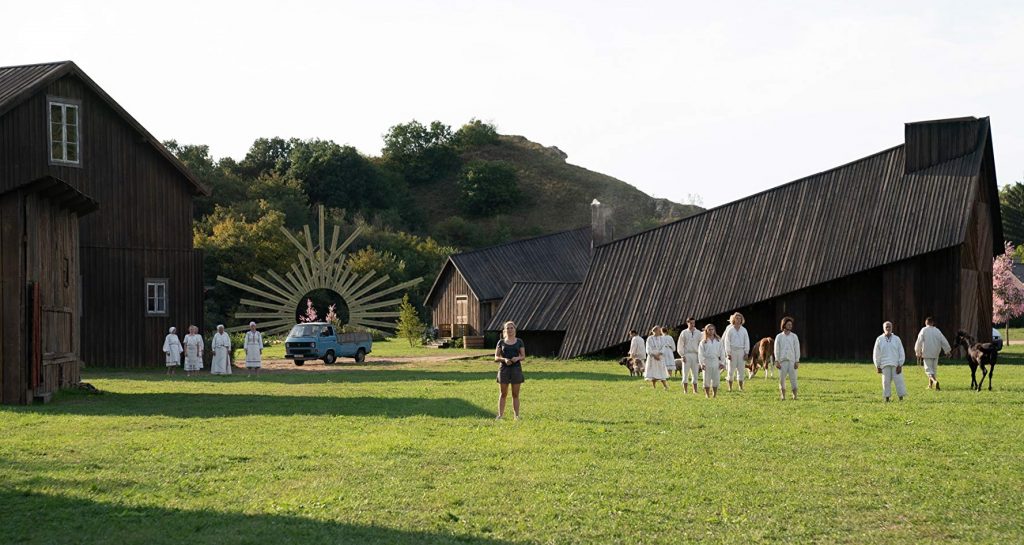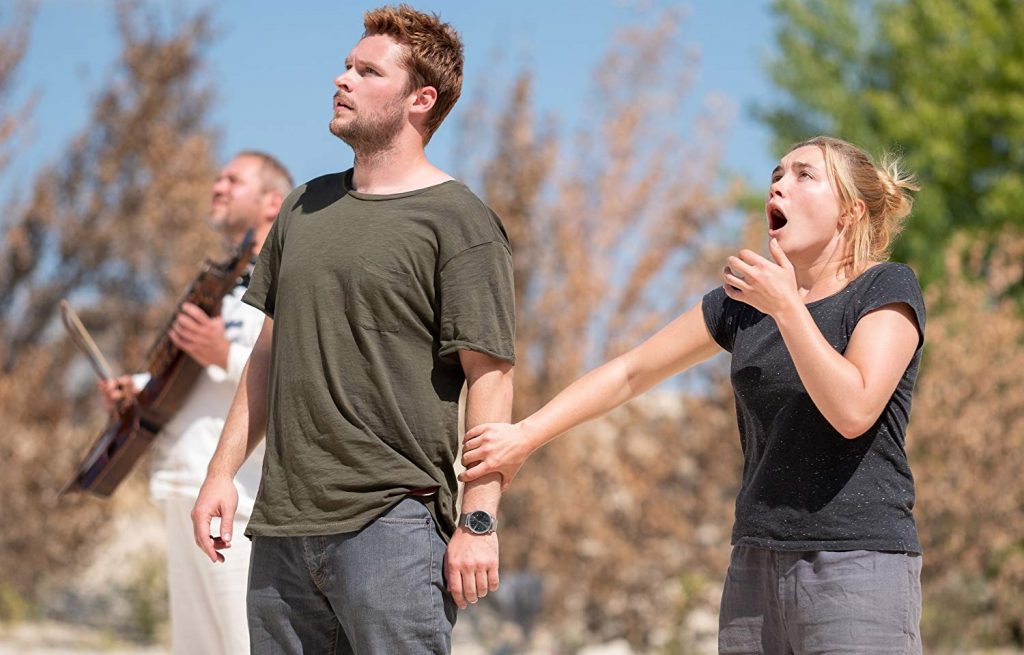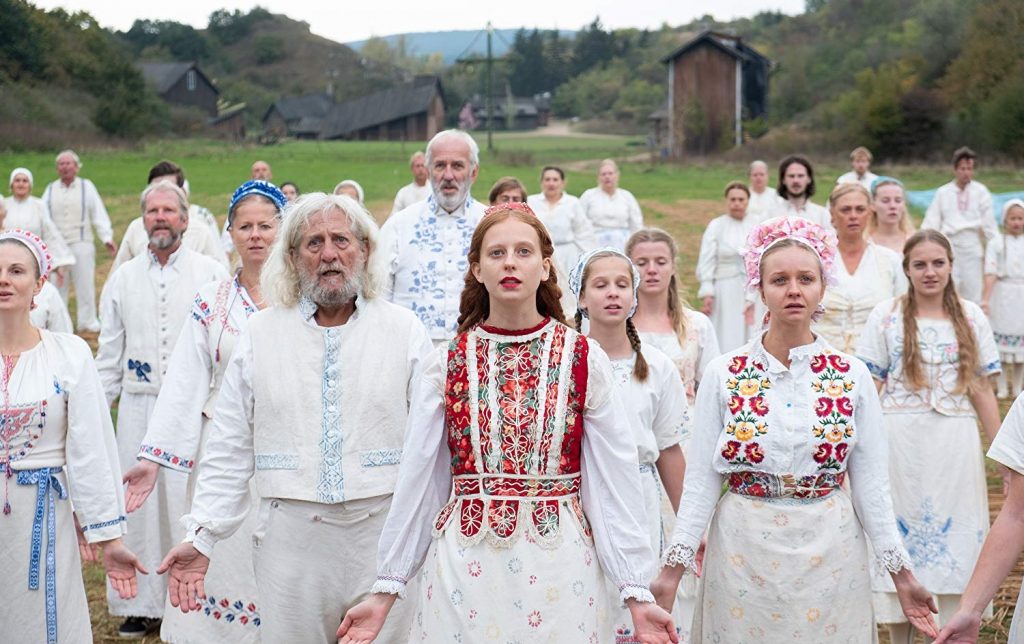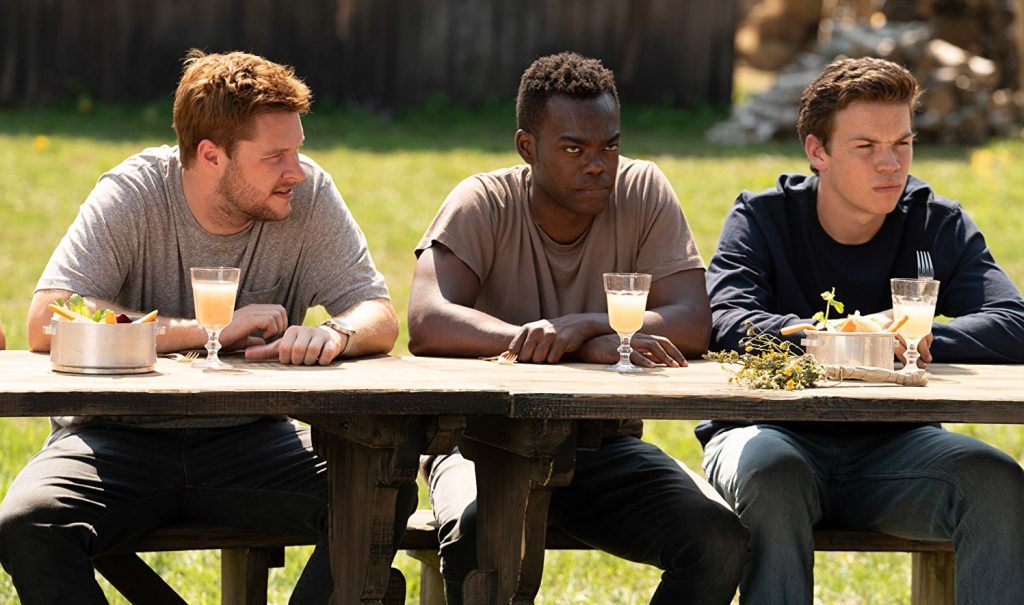
Sometime, a movie comes along that is unexpectedly difficult to review. Ever watched a picture that had a lot of intriguing ideas, effective elements and looked quite remarkable, yet you couldn’t buy into the concept and lost empathy for several of the characters? Well, that pretty much sums up this critic’s take on Midsommer, the new horror movie from Avi Aster (Hereditary). It is certainly admirable in many respects, yet at the same time is something of a jumbled mess.

Dani (Florence Pugh) is a university student suffering from a personal tragedy. Her boyfriend Christian (Jack Reynor) finds her emotional needs difficult to deal with and talks to friends about ending their relationship. When Christian and his school-chums Josh (William Jackson Harper) and Mark (Will Poulter) agree to head out with Swedish classmate Pelle (Wilhelm Blomgren) and attend his commune’s summer festival, he invites Dani along but doesn’t expect her to accept the offer. To everyone’s surprise she agrees and heads out with them. After arriving at Pelle’s isolated and secretive pagan village, the group witnesses some incredibly disturbing customs. As one can imagine, things get even more distressing as the visitors begin to disappear one by one.

First, the good news. This movie is beautifully shot and the sets are striking, if a bit unsettling to look at. Early on, the group are given psychotropic drugs and the screen warps and twists as they are introduced to the commune filled with oddly shaped wooden buildings against scenic backdrops, and decorations that include brightly painted murals depicting all sorts of strange events. Visually, the movie makes a distinct impression and is always striking in appearance.

Additionally, much of the personal drama revolves around the strained relationship between Christian and Dani. Her character feels very upset and in need of emotional support, but receives very little of it from her boyfriend. Scenes focusing on the underlying strain, frustration and eventual anger are tense and occasionally amusing to witness. Actually, the movie is also far more humorous than anticipated. Some of the reactions to the bizarre events occurring around them do earns laughs. Even the Swedish cult do a fair share of funny things; it’s hard not to chuckle when observing a Bingo-style raffle for who will be taking part in one of their most extreme ceremonies.
Yet, the fact that so much of it comes across as funny means that the movie isn’t particularly tense or scary. Admittedly, there are a couple of incredibly distressing moments, but the responses of the protagonists over the lengthy running time are often more baffling than scary. For this reviewer, one of the biggest issues is over the motivations of Christian and Josh. They’re both working on their PhDs in anthropology and quickly begin to treat the community and shocking ceremonies as a source for their theses.

Yet, the main leads don’t react as one would expect to a violent religious practice, instead stating that visitors should respect the group’s customs… customs that likely haven’t been practiced by humanity in hundreds of years. When the students ask to write about the commune and are met with agreement so long as everything about the village is kept secret, it also seems like a stretch (good luck getting a thesis published without providing any way to verify your findings, guys). One character does try something late in the film to correct the situation, but it almost feels like an afterthought.

Their behavior is difficult to understand, as from this reviewer’s perspective these characters should be the most concerned. At the very least, they should be the first ones to see warning signs and have an idea what is likely coming their way. The second half of the movie relies on viewers following the very odd and seemingly dense decision-making of several of these students. It ultimately caused a disconnect between this reviewer and the story.
Additionally, the movie probably runs about 30 minutes longer than it actually needs to be. Horror fans will also note the obvious connections between this film and The Wicker Man (which seemed a little clearer and more direct in its intent), along with tropes (intentional or otherwise) seen in flicks like Friday the 13th. In the end, I admired Midsommar to an extent and enjoyed taking in the contrasts of the beautiful vistas and disturbing ceremonies. Still, the story is messy and the decisions of the protagonists hard to relate to, meaning that this reviewer couldn’t get involved with their personal strife.


